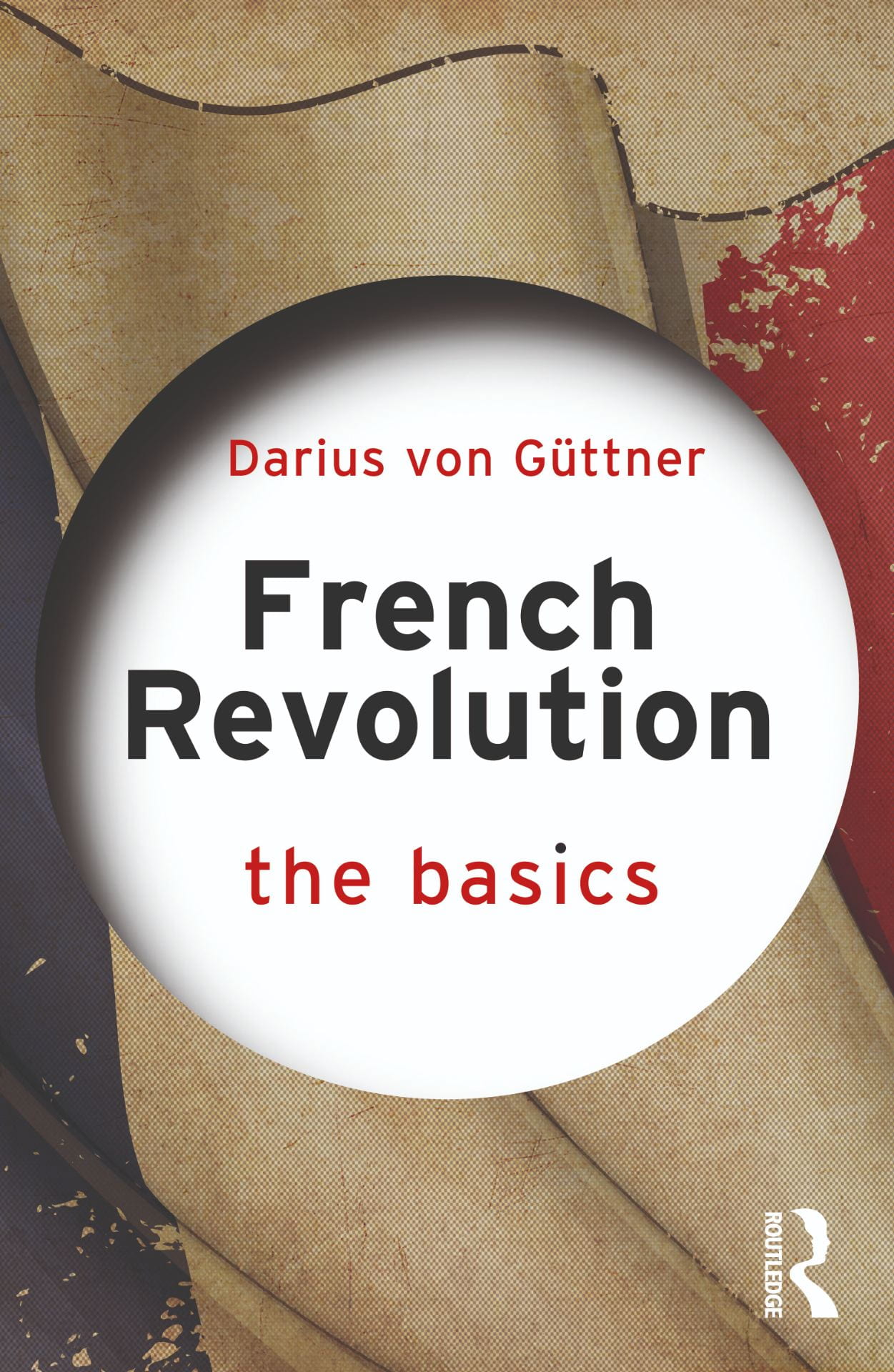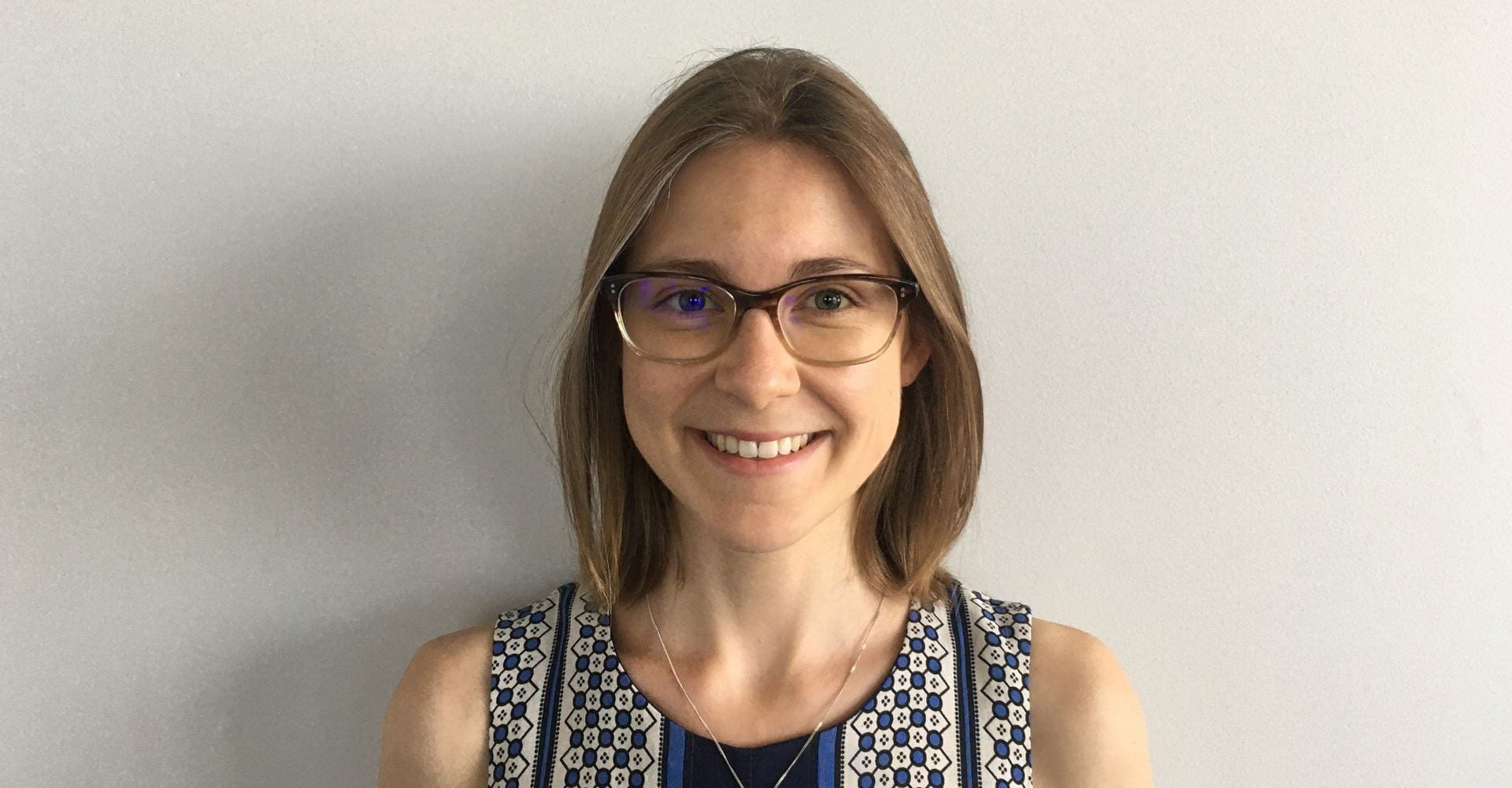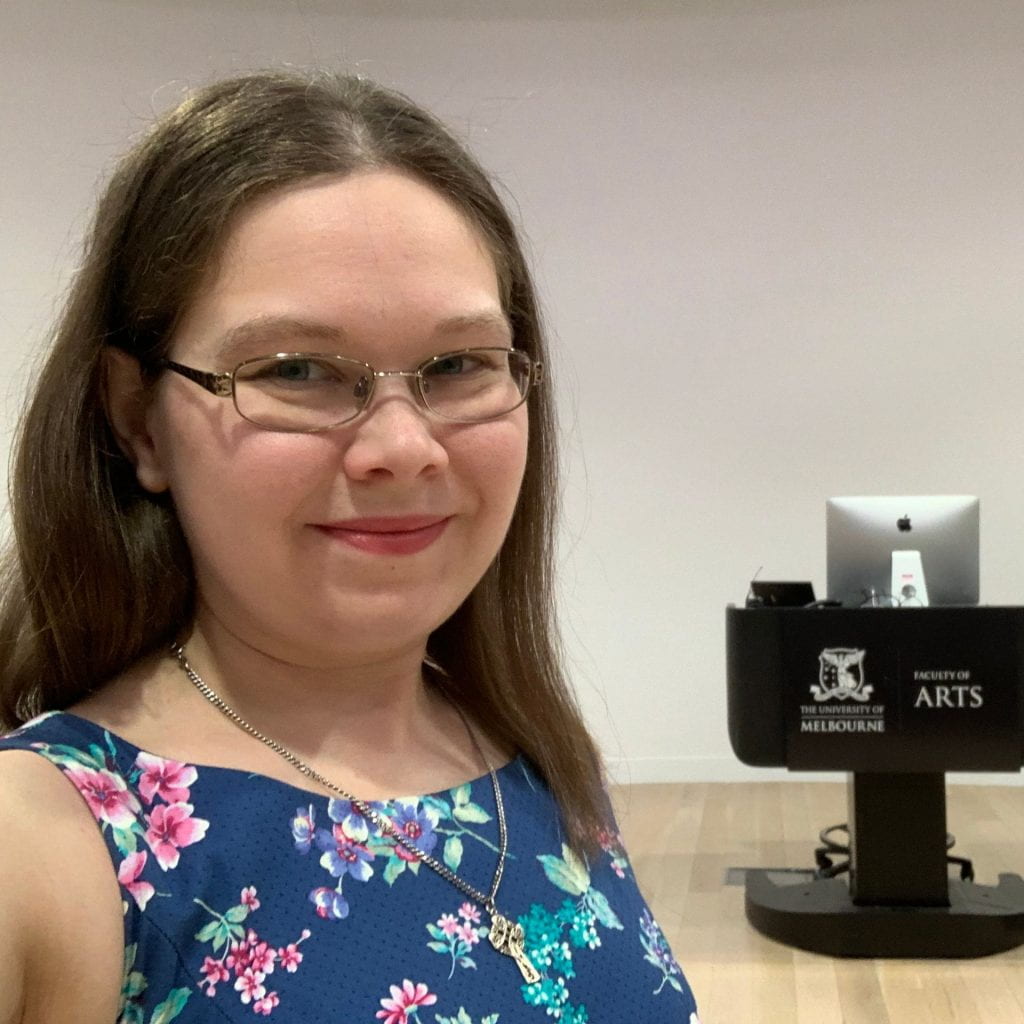
SHAPS Digest (July 2021)
Liam Byrne (Honorary, History) wrote an article for the Chifley Research Centre on ‘The Curtin Government and Full Employment‘, marking the 76th anniversary of former Australian Prime Minister John Curtin’s death by reflecting on his post-World War Two reconstruction legacy and its lessons for the challenges of rebuilding in the wake of the COVID-19 pandemic.
Antonia Finnane (Professorial Fellow, History) was quoted in the Australian (behind paywall) with regard to the recently released Australian Academy of Humanities report (of which she is the lead author) Australian-Asian Research Collaborations in the Humanities: Mapping the Present, Planning the Future.
Catherine Gay (Hansen PhD scholar in History) spoke about her research on nineteenth-century girls’ needlework as part of a Museums Victoria event, Stories of Women from the Collections.
The work of Grimwade Conservation Services was featured on the Arts Faculty website in an article spotlighting three recent major projects: restoration of an 1879 painting by Australian artist Hugh Ramsay, led by Senior Paintings Conservator Cushla Hill; conservation treatments on a collection of glove puppets from the Tatura Irrigation & Wartime Camps Museum, led by conservator Peter Mitchelson; and the restoration of the first large-scale map of Australia, produced by Dutch traders over 350 years ago.
Louise Hitchcock (Classics & Archaeology) discussed Minoan civilisation in the Bronze Age on the Ithaca Bound podcast.
Zoë Laidlaw (History) co-authored with Jane Lydon (UWA) an introductory essay for the Conversation’s new series on the Australian legacies of slavery research. In the essay, they explore the legacies of British slavery in Australia, using a biographical method to trace the significant movement of peoples, funds and practices from the Caribbean to the new Australasian colonies in the mid-nineteenth century. They examine the risks and advantages of prioritising individual lives to explore complicated histories of slavery and colonisation. The essay is a product of their research project, Western Australian Legacies of British Slavery.
Following on from her co-authored working paper on sustainable history, Carla Pascoe Leahy (ARC DECRA Fellow, History) led a group of historians to propose a Sustainability Motion at the Australian Historical Association’s Annual General Meeting on 1 July 2021. After Carla’s presentation on the responsibilities of academic historians in a climate-impacted world, the motion was passed by 98% of attendees.
Jordy Silverstein (Honorary, History) published an article with the Conversation and the ABC’s Saturday Extra program, ‘How Golda Meir, Israel’s “Iron Lady”, Helped Establish an Independent Jewish State‘.
Academic Publications:
 Margaret Cameron (Philosophy) and James O. Young (University of Victoria) translated, edited, and annotated a scholarly edition of Jean-Baptiste Du Bos’ Critical Reflections on Poetry and Painting (Brill, 2021). Jean-Baptiste Du Bos’ Critical Reflections is one of the seminal works of modern aesthetics. Du Bos rejected the seventeenth-century view that works of art are assessed by reason. Instead, he believed, audience members have sentiments in response to artworks. Their sentiments are fainter versions of those they would feel in response to actually seeing what the work of art imitates. Du Bos was influenced by John Locke’s empiricism and, in turn, had a major impact on virtually every major eighteenth-century contributor to philosophy of art, including Voltaire, Montesquieu, Diderot, Rousseau, Herder, Lessing, Mendelssohn, Kames, Gerard, and Hume. This is the first modern, annotated and scholarly edition of the Critical Reflections in any language.
Margaret Cameron (Philosophy) and James O. Young (University of Victoria) translated, edited, and annotated a scholarly edition of Jean-Baptiste Du Bos’ Critical Reflections on Poetry and Painting (Brill, 2021). Jean-Baptiste Du Bos’ Critical Reflections is one of the seminal works of modern aesthetics. Du Bos rejected the seventeenth-century view that works of art are assessed by reason. Instead, he believed, audience members have sentiments in response to artworks. Their sentiments are fainter versions of those they would feel in response to actually seeing what the work of art imitates. Du Bos was influenced by John Locke’s empiricism and, in turn, had a major impact on virtually every major eighteenth-century contributor to philosophy of art, including Voltaire, Montesquieu, Diderot, Rousseau, Herder, Lessing, Mendelssohn, Kames, Gerard, and Hume. This is the first modern, annotated and scholarly edition of the Critical Reflections in any language.
 Darius von Güttner (Honorary, History) has a new book coming out, French Revolution: The Basics (Routledge). French Revolution: The Basics is an accessible and concise introduction to the history of the revolution in France. Combining a traditional narrative with documents of the era and references to contemporary imagery of the revolution, the book traces the long and short term causes of the French Revolution as well as its consequences up to the dissolution of the Convention and the ascendancy of Napoleon. The book is written with an explicit aim for its reader to acquire understanding of the past whilst imparting knowledge using the underlying historical concepts such as evidence, continuity and change, cause and effect, significance, empathy, perspectives, and contestability.
Darius von Güttner (Honorary, History) has a new book coming out, French Revolution: The Basics (Routledge). French Revolution: The Basics is an accessible and concise introduction to the history of the revolution in France. Combining a traditional narrative with documents of the era and references to contemporary imagery of the revolution, the book traces the long and short term causes of the French Revolution as well as its consequences up to the dissolution of the Convention and the ascendancy of Napoleon. The book is written with an explicit aim for its reader to acquire understanding of the past whilst imparting knowledge using the underlying historical concepts such as evidence, continuity and change, cause and effect, significance, empathy, perspectives, and contestability.
Ángel Alcalde (History) has a new edited volume coming out, co-edited with Foster Chamberlin (Boğaziçi University) and Francisco J. Leira-Castiñeira (University of Santiago de Compostela): The Crucible of Francoism: Combat, Violence, and Ideology in the Spanish Civil War (Sussex Studies in Spanish History, 2021).
The July 1936 coup d’état against the Spanish Second Republic brought together a diversity of anti-Republican political and social groups under the leadership of rebel Africanista military officers. In the ensuing Civil War this coalition gradually came under the rule of Generalissimo Franco. This volume explores the hypothesis that the violence and combat experiences of the war were the fundamental ideological crucible for the Francoist regime. The rebels were a group of reactionary and anti-liberal forces with little ideological or political coherence, but they emerged from the conflict not only victorious but ideologically united under the dictator’s power. Key to understanding this transition are the different political cultures of the rebel army, how the combatants’ war experiences contributed to the transformation of diverse rebel groups, and the role of foreign armed intervention.
The contributors examine not only the endogenous Spanish political and military cultures of the Francoist coalition, but also the transnational influence of foreign groups. The roots of Francoist political culture are found in the Falangist and Carlist militias, and Civil Guard units, that lent their support to the military rebellion. The war experiences of conscripts, colonial troops, and junior officers forged the Francoist ideology. It was reinforced by fascist influences and assistance from Germany and Italy, and the lesser-known contributions of Swiss and White Russian volunteers. At the beginning of the conflict the rebel side was not homogeneous. But it wove together a complex, transnational web of political and military interests in the midst of a bloody and destructive war, transforming itself in the process to a political and dictatorial platform that was to rule Spain for many years.
Oleg Beyda (Hansen Chair Support, History) was guest editor (with Igor Petrov [Munich]) of a special section of the Russian journal Neprikosnovennyi zapas dedicated to the 80th anniversary of the German-Soviet War. In the introduction (co-authored with Igor Petrov), Dr Beyda develops a new conceptual approach to the motivation and psychology of the war, arguing that historians have simply overlooked the chaos (complex unpredictability) of the war as a key element in its analysis. The section opens with an article by Mark Edele (Hansen Chair in History) on Joseph Stalin’s behaviour in the summer of 1941. (A video-recording of a lecture [in English] based on this text is available in Forum’s Sound & Vision section).
Joy Damousi (with Filippo Nelli, Anh Nguyen Austen, Alessandro Toffoli and Mary Tomsic) published an article, ‘Forced Migration, Oceanic Humanitarianism, and the Paradox of Danger and Saviour of a Vietnamese Refugee Boat Journey‘ in The Historical Journal.
The ocean is a central site of escape, danger, and rescue for refugees. It is also a place where oceanic humanitarianism is enacted. In histories of refugee migration, the combination of the ocean, weather, and climate in determining the fate of refugees has not been adequately examined. This article provides a critical analysis of a Vietnamese refugee boat journey in 1982, to demonstrate the paradoxical nature of the ocean as both a site of danger and saviour. Conventional historical methodologies alone cannot capture the complex role of the ocean and the weather in determining boat refugee journeys and rescues. Interdisciplinary research between historians and ocean engineers provides new evidence and understanding of how the ocean and weather influences the outcomes of refugees seeking asylum by boat. Numerical model predictions of sea state and ship motion – which enables the vessel’s journey in past environmental conditions to be understood – integrated within historical analysis contributes to a fuller and more complex understanding of the nexus between environmental conditions and forced migration journeys. Ocean engineering produces a scientific narrative that historians can use, alongside oral histories and other sources, to theorise the ocean as an active agent.
David Palmer (Honorary, History) published an article, ‘Japan’s World Heritage Miike Coal Mine – Where Prisoners-of-War Worked “Like Slaves”,’ in the Asia-Pacific Journal.
Mitsui’s Miike Coal Mine is World Heritage listed by UNESCO as one of Japan’s ‘Sites of the Industrial Revolution’. The Japanese government, however, has failed to tell the full story of this mine, instead promoting bland tourism. In World War Two, Miike was Japan’s largest coal mine, but also the location of the largest Allied POW camp in Japan. Korean and Chinese forced laborers also were used by Mitsui in the mine. The use of prisoners was nothing new, as Mitsui and other Japanese companies used Japanese convicts as workers in the early decades of the Meiji era. The role of Australian POWs in particular reveals that there was resistance inside Miike even at the height of abuse by Japanese wartime authorities. Japan has a responsibility under its UNESCO World Heritage agreement to tell the full history of this and other ‘Meiji Industrial Revolution’ sites.
Oleg Beyda‘s book Spanish Sorrow: The Blue Division and the Campaign to Russia, 1941–42. Reminiscences of V. I. Kovalevskii (Nestor-Istoriia, 2021) (in Russian, co-edited with Xosé Manoel Núñez Seixas) was reviewed (in Russian) by Andrei Zakharov: “Oleg Beyda and Xosé Núñez Seixas have carried out a huge amount of work: in addition to a highly detailed seventy-page foreword […], the book is equipped with an immensely valuable and exceptionally high-quality scholarly apparatus.”
Liam Byrne‘s book Becoming John Curtin and James Scullin was reviewed by Judith Brett in the latest issue of History Australia: “a pleasure to read, written with verve and economy that will appeal to the general reader interested in the history of the Labor Party. It brings the early years of the Labor Party to vivid life with a compelling picture of its rich intellectual culture”.
Mark Edele‘s book Debates on Stalinism (Manchester University Press, 2020) was reviewed (in Russian) by Pavel Gavrilov: “Stalinism remains a concept which is often used but rarely thought through. [This book is] a valuable reminder that what we have before us is the object of a prolonged and still ongoing debate [and that, moreover,] this is not only a national but an international topic.”
Awards & Appointments:
Georgina Arnott (Postdoctoral Research Associate, History) has won an ABC 2021 TOP 5 Humanities Residency. Under this scheme Georgina will be sharing the findings of her research on nineteenth-century Australians who came to the colonies after being involved in British slavery and anti-slavery movements. This research is part of the Western Australian Legacies of British Slavery project.
Our graduate André Brett (now at the University of Wollongong) (@DrDreHistorian) has been awarded the Australian Academy of the Humanities’ 2021 Max Crawford Medal. The Medal is Australia’s most prestigious award for achievement and promise in the humanities, and it is awarded to an Australia-based early-career scholar for outstanding achievement.
Nicole Davis (PhD Candidate, History) has started a position with Melbourne Graduate School of Education as Digital and Qualitative Research Specialist for the SOCEY (Studies of Childhood, Education & Youth) team, working on the multi-institutional CADRE (Coordinated Access for Data, Research and Environments) research project. Led by the Australian Data Archive (ADA) and funded by the Australian Research Data Commons (ARDC), the project will develop a platform as a means to improve Australian researcher access to sensitive data. The SOCEY team specifically focus on qualitative data through the lens of their work on studies of childhood, education and youth in diverse fields, particularly sociology, education and history.
After completing her MA in History in February on Venetian pizzochere (lay religious women), Jen McFarland has received a UK Arts and Humanities Research Council scholarship to support her PhD in History at the University of Cambridge. Jen’s project, currently titled Getting on in a Gerontocracy: Charity, Gender, and Ageing popolani in Early Modern Venice, will investigate how poorer working and artisan Venetians experienced and negotiated ageing in the early modern period, and the place of the elderly poor within the broader city community.

Jordy Silverstein (Honorary, History) has been awarded the 2021 Marian Quartly Prize for the best article published in History Australia journal in 2020, for her article, ‘Refugee Children, Boats and Drownings: A History of an Australian “Humanitarian” Discourse‘.
Shawn Standefer (former post-doctoral research fellow, Philosophy) has been appointed as an Assistant Professor in Philosophy at National Taiwan University starting in August 2021. It is a teaching and research position. He will teach Logic and Philosophy classes and continue the research he started at the University of Melbourne during his five years as a post-doctoral researcher in SHAPS working with Greg Restall on the ARC-funded project ‘Meaning in Action‘.

PhD Completion Seminars:
Several History postgraduate researchers delivered their PhD completion seminars in July.
Elizabeth Tunstall, ‘The Elizabethan Succession Question and Competing Understandings of Monarchy, 1558–1603’.
Queen Elizabeth I ruled England for almost 45 years (1558–1603) and, throughout her reign, the succession was a prominent source of debate and anxiety. This thesis surveys the Elizabethan succession question for the entirety of her reign instead of dividing the topic into early or late periods as is typical. An examination of the debate as it appeared in the succession tracts, the writings of Elizabeth and the numerous manoeuvres of the Privy Council and Parliament, has enabled this thesis to explore the effect of the succession debate upon English considerations of government and royal prerogative during the late sixteenth-century.

Anton Donohoe-Marques, ‘Revisiting Anzac in the Wake of World War Two: Memory and Identity in the Post-War Period, 1945–1960’. Anton’s thesis examines the reconfiguration of war memory and identity in Australia in 1945–1960. After World War Two, Anzac remained an unavoidable reference point that structured and shaped how Australians made sense of this new war, but at the same time, the legend itself was also redefined and invested with new meaning. The thesis examines the struggles over the Anzac myth during this period, as different actors sought to instrumentalise Anzac in support of competing identity-building projects.

Jessie Matheson, ‘Countryminded Conforming Femininity: A Cultural History of Rural Womanhood in Australia, 1920–1997’.
Jessie’s thesis explores the cultural history of rural womanhood in Australia between 1920 and 1997. It draws together archives of rural women’s representation in art and other popular media (particularly film), rural women’s political engagement, and the lives of individual women who worked and lived in rural Australia. It finds that the ways in which rural womanhood was culturally constructed profoundly influenced rural women’s lives and political fortunes. By tracing and critically exploring the changing this cultural construction of rural womanhood, this thesis in turn centres rural women in its study of twentieth century Australian cultural and political life.

Jimmy Yan, ‘Contentious Routes: Ireland, Radical Political Articulations and Settler Ambivalence in (White) Australia, c1909–1923’.
Jimmy’s thesis is a transnational history of the ‘Irish Question’ in the imperial and ethico-political imaginary of radical and labour movements in (White) Australia during the ‘Irish revolutionary period’, broadly conceived. It traces the contestation of ‘Ireland’ as a political signifier, with attention to constructions of self/other, New World racial utopias, and contingent articulatory practices. In decentring ‘long-distance nationalism’, it affords attention to political travel narratives, non-nationalist radical subjectivities, and non-Irish politicisation around Ireland. This unstable play of meanings continually signified in excess of ‘the nation.’
Student Association News:
The History Postgraduate Association recently elected its new 2021/22 committee: Thea Gardiner, Co-President; Yowhans Kidane, Co-President; Simon Farley, Secretary; James Hogg, Treasurer; Cat Gay, General Committee Member. You can read more about their research projects and their plans here.
Chariot undergraduate historical journal is collaborating with the Melbourne University Tea Appreciation Society to produce a special edition of Chariot journal focused on the history of tea; for more info, see the call for submissions.
SHAPS staff, fellows, students, alumni: if you have news items for the monthly SHAPS digest, please email us the details.